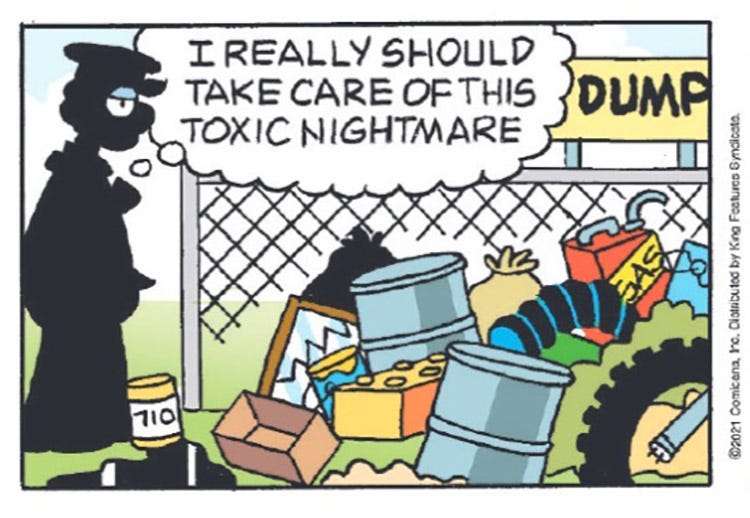The Reluctant Type
Dear The Sophist,
The sentences that I compose in my head, when written down/typed out/spoken out loud, or in any way extracted and given a physical form, would suddenly seem lumpy and inadequate. In my head, they flow and connect and I feel so inspired when thinking them that I want to write them down. So I do, and I run into the aforementioned problem of facing reality.
This is a problem because I get very excited to start a project, be it an article or a story, and I've been lucky enough to find outlets willing to publish my writing. Then I sit down to write the middle and it is just torture. It takes me so much effort to get to an ending, if I get there at all. I have abandoned many short stories between the fourth and sixth page. The sentences, their quality declines the more I work at it. I know it's not the sentences' fault. It's me. So what should I do?
Sincerely,
Is My Brain the Quiet Car?
Dear Suspended Sentences:
The Sophist composed an answer to your question mentally, then felt like writing something else instead, wrote that other thing, and followed that up by spending a couple more hours doing nothing in particular. The gist of that first, mental answer was: the sentences in your brain are elegant because they're really just sentence-shaped design sketches. They don't have all the words fitted together and pasted in, and they don't need to connect to each other.
That was a key point, but it wasn't exactly the thing to write. It was slightly backwards from the focus of The Sophist's mission. The message for you is: your sentences are fine! But also: you can stop writing them if you want.
Through decades of writing for money and (less taxingly) of helping other people get their writing done for money, The Sophist eventually learned the hard truth that getting stuck is generally a practical problem, not a metaphysical one. It's not because you're having difficulty with your relationship to your muse or with your energy flow (although a pastry or a cup of coffee or a nap might help!). And it's very rarely a problem with the crafting of the sentences.
(The sentence, as a unit of literary work, has always struck The Sophist as a fairly pointless thing to fetishize. A sentence on its own has no particular music or wit or subtlety or any of the other things people like to praise; it takes on those characteristics from its relationship to the other sentences and paragraphs around it. There are bad sentences, for sure, and it's fun to make fun of them, but a lot of the time, the difference between a lyrical sentence and a pretentious one is a matter of how well everything else in the piece of writing has managed the reader's expectations. If individual sentences were really so valuable, everybody wouldn't be giving them away for free on Twitter all day!)
Once you sit down to turn the story concept in your mind into a written piece of fiction, you quickly discover that you need to do inelegant things like getting your characters from one side of the room to the other. Once you start converting an argument your inner voice has rehearsed into a written piece of nonfiction, you keep needing to find a verifiable fact that correctly illustrates one idea and attaches it to the next. It's work—work that The Sophist, personally, spends as much time as possible avoiding.
As you do that work, you may notice that your sentences are getting flat and boring, or gnarled and impenetrable. This makes you feel like you're unable to go on. You're right! But it's not because of the sentences. It's because you haven't solved some particular problem with the piece of writing you're doing. Your sentence feels dull and hollow because the thing you said at the beginning of your would-be essay doesn't yet lead to the thing you intend to say at the end. Your sentence feels knotty and overcomplicated because your character still doesn't have a plausible reason to go across the room. And at the moment, you don't have it in you to fix these things.
So don't. Unless you're on a deadline that requires you to deliver a specific piece of writing to a specific person at a specific time, drop it and go write another one of those elegant new beginnings, about something else. Really do write it, though. Add it to your stack of partial documents.
And then, when you feel yourself getting stuck on this one, ask yourself what you'd rather be thinking about than this current piece of writing. Maybe it's yet another new beginning from your mental collection. Maybe, though, it's just a different one of your false starts, which seems less unbearable to return to now. Read a few of them over. Do you see a way to add another idea? Does one of your aimless characters now feel a sudden sense of purpose coming over them?
There are other ways to make yourself dig in and do the unwelcome work of writing—a 25-minute timer usually works, or a drop-dead commitment to write something every day no matter how short, or scribbling a passage out longhand so it seems less real and finalized than words on a screen. Sometimes one of these succeeds when nothing else will. But the pinnacle of productivity strategy, for the chronically unproductive, is to pit the stubborn pieces of writing against each other, so that progress becomes the highest form of procrastination.
Or, if you're staring at a piece of earnest literary fiction and you can't make the next sentence come, try this one: A shadow fell over her, and she looked up to see an immense spaceship silently descending.
Or: A shadow fell over her, and she looked up to see a plump man in an elegantly tailored suit holding a chrome-plated automatic handgun.
Now your protagonist has got a reason to start doing something! And so do you.
Keep typing till you stop, like so,
The Sophist
THE SOPHIST is the advice column that’s here to tell you why you're right. Keep your questions coming to indignity@indignity.net, so you can keep getting the answers you want.
FUNNY PAPER DEP’T.
BEETLE BAILEY: In Sunday's strip, General Halftrack mopes around Camp Swampy. "I really should get those windows fixed," he thinks, gazing at the cracked glass. He continues on through the camp, adding to his list of really-shoulds—a damaged roof, a fountaining water main, ragged fencing, a "toxic nightmare" of a waste dump—until he ends up back at his desk, "I really should just retire," he thinks. The Mort Walker Memorial Comic Strip Factory has delivered a considerably more realistic account of the end of the United States military's nation-building project in Afghanistan than most mainstream national-security reporters managed to come up with.





